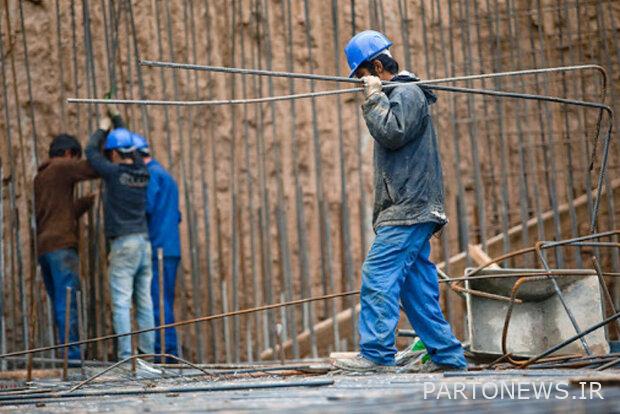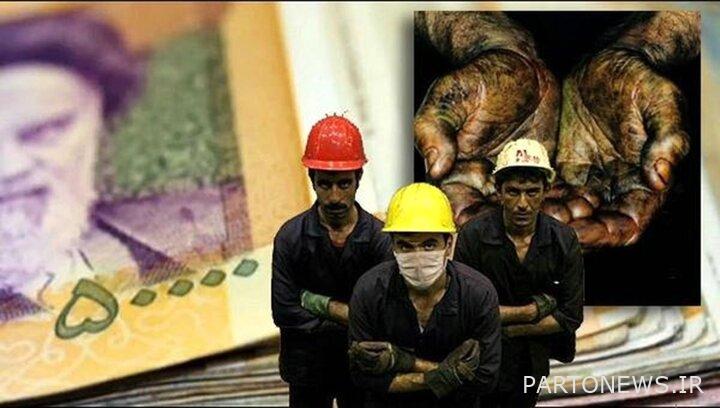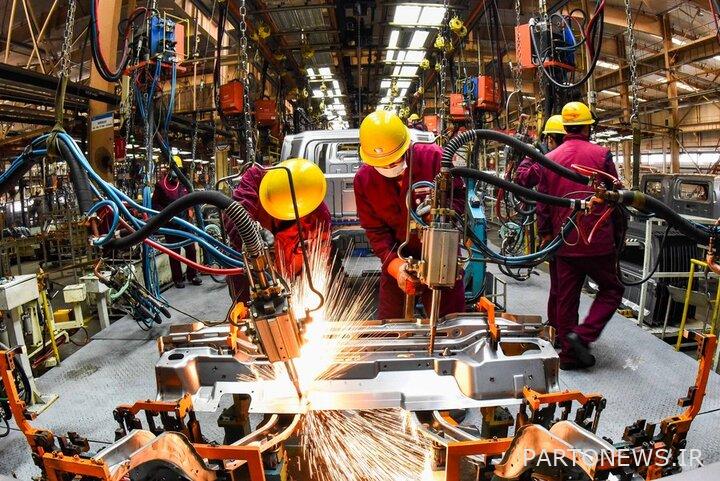Calloused hands in the waiting period/problems of workers cannot be solved with slogans – Mehr News Agency | Iran and world’s news

Mehr News Agency – Provinces Group: Low salaries, low safety of the work environment, white contracts, lack of job security, lack of full insurance and work history are only part of the problems of the workers, which have been under way for years based on the promise of the managers, but it seems that the finish line for These challenges do not exist.
Even though workers are mentioned as “human capitals that play a role in the development of the country” or “production soldiers” in various ceremonies and rituals, they still struggle in a sea of problems.
Despite the fact that many workers fear the consequences of raising problems with the media, they do not speak about their challenges, but the volume of their problems is such that you can hear their pain even in silence.
Official and contracted workers covered by pension funds receive a monthly salary of up to eight million tomans, an amount that does not even cover the monthly living of one person, let alone a family of four to five people.
Surprising costs of health and treatment, heavy cost of rent or buying a house, education and marriage of children, groceries and clothes are among the necessities of a household, which is very difficult to imagine providing them with eight million Tomans.
Registration of temporary contracts is a problem for the labor community
In this regard, the head of Golestan Islamic Labor Council Coordination Center told Mehr reporter: In order to have an advanced country with an independent and prosperous economy, more importance should be given to the worker category.
Ruhollah Tajari added: Job security, livelihood, treatment and housing costs are among the most important issues and challenges facing the workers.
He stated: In the issue of job security, unfortunately, we see the continuation of temporary contracts by some profit-seeking employers, which has caused additional pressure to be imposed on workers and sometimes the rights of workers are lost.
Regarding the issue of workers’ livelihood, Tajari also said: Although there was a good increase in the amount of workers’ salaries last year, the increasing inflation and prices made this salary increase not very effective.
Provision of shelter is desired
The head of the Coordination Center of Islamic Labor Councils of Golestan continued: The challenge of providing housing for workers has turned into a bitter and repeated story, the conditions of inflation and the increase in house prices have caused workers to only look for a mortgage and rent a suitable housing, and owning a house for They become a dream.
Eliminating the overtime tax, reducing the time for processing workers’ complaints and helping to buy dowry for children are among the demands of the labor community. He added: Allocating low-interest facilities for working or retired workers in order to provide dowry for children or medical expenses is one of the topics that can greatly help in reducing workers’ concerns.
Tajari continued: Removing the tax on workers’ overtime earnings is one of the issues that we hope the parliamentarians will address in order to help the workers’ livelihood even a little.
He said: The long process of dealing with legal issues and complaints between workers and employers endangers the livelihood of workers, and this process should be reduced because the dismissed workers do not have any income or salary until the assignment is determined.

Salary increase does not match the inflation rate
The executive secretary of the Golestan Workers’ Home told Mehr reporter: Livelihood and treatment are two main issues for working and retired workers, and we are trying to reduce some of the concerns of these loved ones by using all available capacities.
Gholamreza Taleba added: The increasing price of goods and services and the importance of the production sector led to the name of the supreme leader of this year’s revolution in the name of curbing inflation and production growth, so it is necessary for the authorities to make efforts in this direction.
He continued: In such a situation, we see that the Minister of Industry, Mines and Trade issues permission to increase the price of dairy products and cars, as well as service tariffs, which is in complete contradiction with the leadership’s recommendations.
Taleba said: The salary rate increase should be based on the general inflation announced by the Central Bank and the livelihood basket, but this issue is not observed.
The Executive Secretary of Golestan Labor House stated: Although the Central Bank has announced annual inflation of more than 47%, the Supreme Labor Council, with the aim of accompanying the government’s control policies in the field of inflation, settled for a 27% increase in workers’ salaries.
He said: Based on the agreements made, it was decided that if the upward trend of inflation is not curbed by the middle of the year, it will be possible to increase the salary for the workers in the last 6 months of the year.

Workers are stuck in their daily livelihood
Taleba added: The payment of 7,800,000 tomans salary cannot meet the needs of the workers’ families and there is a need to urgently find a solution for this area.
He named health and treatment as one of the most important challenges facing the working community and said: After removing the preferential currency, health care services have faced astronomical prices, and although workers pay insurance premiums to the social security organization, unfortunately, the health care services of this The organization is not desirable.
The Executive Secretary of Golestan Worker’s House continued: The community of retired workers is also facing many problems in the field of treatment, despite the fact that two percent of salaries for treatment and four percent for supplementary insurance are deducted from the salaries of retirees, but proper services are not provided to retirees.
He added: Forecasting the basket of goods in electronic form and forecasting incentives and financial facilities for workers to get a home are among the things that can reduce the livelihood problems of workers.
Taleba added: “During the last few months, we have seen a 30-40% increase in housing prices in the country, which has made it harder than ever for workers to own a house, so the only solution for workers to own a house is to promote the category of housing cooperatives.”
He announced that the working community of Golestan is between 170,000 and 180,000 people and said: These workers are working in the field of services, guilds, production factories and agriculture.

Reducing the time to handle workers’ complaints
The General Director of Golestan Cooperative, Labor and Social Welfare also told reporters: supporting small and medium household businesses as well as setting up and strengthening entrepreneurial benefactors is one of the main topics for supporting production and the working community.
Hossein Ali Khawajeh Mozafari added: Some workers’ affairs, such as rights, are outside the scope of the provinces’ duties, and the ministries make decisions about it, but in these meetings, the representatives of the workers are present along with the representatives of the employers and the representatives of the government, and any decision regarding the labor community is made with the presence of Their representatives are done.
He added: The livelihood problems of workers cannot be hidden, but we are trying to provide services to workers with various solutions, including encouraging employers to anticipate welfare issues or distributing livelihood packages with the participation of Basij and IRGC, as well as making the activities of worker housing cooperatives more effective.
According to Khawaja Mozafari, one of the issues that has been put on the agenda in the labor field is reducing the time for dealing with disputes and pending cases.
Khawaja Mozafari added: We have reduced the processing time from 60 days to 55 days and then to 44 days, and in order to prevent the violation of the rights of workers and employers, we are trying to increase the processing time of pending cases to 35 days in order to minimize possible damages.
According to the Mehr reporter, the pain and problems of the workers may have been expressed by them many times, but there is no serious determination to solve them. Although some managers with political and populist approaches talk about workers’ concerns in their platforms, but the reality is that solving the many challenges facing the labor society requires managers and executive and operational officials.

